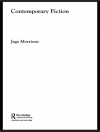This book analyses soldiers’ memoirs from the Great War of 1914-18 from Britain, France and Germany. It considers both the authors’ composition of the memoirs and the public response to them. It provides contextual analysis through a survey of the different types of contemporary writing about the Great War, through an analysis of changes in the language used to describe combat, and through an analysis of those people whose accounts of the war were either excluded or marginalised. It also considers the international response to the most successful of the texts. The purpose of the analysis is to show how soldiers’ memoirs contributed to the collective memory of the war and how they influenced public opinion about the war. These texts are both autobiographical and historical and their relationship to the fields of autobiography and historical writing is also considered, as well as to the distinction between fact and fiction.
Mục lục
1. The Great War genes.- 2. Marginal Voices.- 3. Language and Combat.- 4. Themes in British reviews of Great War memoirs.- 5. Blunder,
Undertones of War and
De Bello Germanico.- 6. Reading Lawrence of Arabia in 1927.- 7. Henry d’Estre,
From Oran to Arras.- 8. Reading Barbusse,
Under Fire in 1917.- 9. Genevoix,
The Men of 14.- 10. The Norton Cru affair.- 11. War memoirs and German politics in the 1920s.- 12. Contrasting versions of nationalism at war’s end.- 13. Renn,
War.- 14. von Salomon,
The Outlaws (Les
Réprouvés).- 15. Transnational comparisons.
Giới thiệu về tác giả
Jerry Palmer is the former Professor of Communications at London Metropolitan University, UK and Visiting Professor of Sociology at City University. He is the author of six other books and many scholarly articles about popular culture and the mass media.












